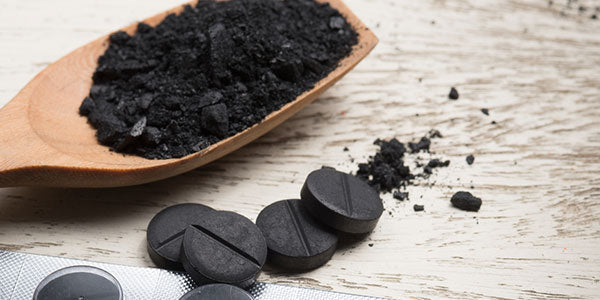
Some diet trends warrant high attention and considerations, especially when they appear extreme. Though their potential uses may seem appealing, it is important to understand the repercussions that may follow some regimens. And when it comes to weight loss, a nutritious diet is highly encouraged for the greatest outcomes. So may a non-food or beverage item, such as activated charcoal, have the ability to portray healthful benefits?
How Does Activated Charcoal Work?
Despite its name, activated charcoal is not the same as the coal used to fuel a grill or fire pit. Instead of offering home use, activated charcoal is utilized in medical situations. Activated charcoal is pure carbon, commonly created after exposing environmental materials (such as wood and peat) to gases and extreme heat. The end product provides high surface area and internal pores, largely promoted and used to capture particles. It further displays characteristics of adsorption, a mechanism that can be described as a magnet. Adsorption is a surface-based process and causes particles to adhere to its exterior. Its structure ultimately suggests its benefits, advised or not, and the promotion of its use.
Activated Charcoal Uses
According the WebMD, number one is the only use likely to be effective. The further listed uses lack sufficient evidence and are commonly self-promoted by its advocates.
1. Poison Detoxification
Activated charcoal is historically, and most safely, used under medical supervision. If or when a poisonous substance enters the body, toxins essentially stick to activated charcoal, eliminating them from the body system. This practice is extremely valuable to preventing overdoses that may be life-threatening.
2. Gas Relief
If experiencing intestinal gas, studies have suggested it may be an effective remedy. However, additional studies disagree to the claim. At this time, the best way to reduce intestinal gas are with these recommendations provided by the Mayo Clinic.
3. Hangover Remedy
Its users stand by the efficacy of activated charcoal following a late night out. Experts, though, are skeptical on its use, as activated charcoal has not proven to trap alcohol in an applicable manner. The best way to prevent a hangover is drinking in moderation and staying hydrated with water.
4. Cholestasis of Pregnancy Treatment
Cholestasis is a liver disease, impairing the flow of bile. In pregnancy, the condition may appear in a later term and affects the absorption of fat-soluble vitamins. Mom may experience common itching and uncommon liver problems while baby may be born preterm. Some research suggests activated charcoal may treat cholestasis during pregnancy.
Precautions
With short-term use, activated charcoal has been shown to be safe. But consistent and overuse of activated charcoal may lead to constipation and black stools, even with ability to completely block the gastrointestinal (GI) tract and cause dehydration. Activated charcoal abuse may also lead to nutritional deficiencies, as it is suggested activated charcoal does not differentiate between "good" and "bad" body compounds. That being said, its introduction in the GI tract may attach precious nutrients and excrete them from the body. Before exploring and implementing its use, consult with a healthcare professional for best practices and health considerations.
Reference:
Activated Charcoal. WebMD. Available at: http://www.webmd.com/vitamins-supplements/ingredientmono-269-activated%20charcoal.aspx?activeingredientid=269&.






